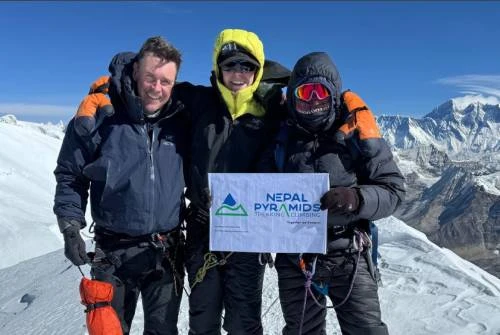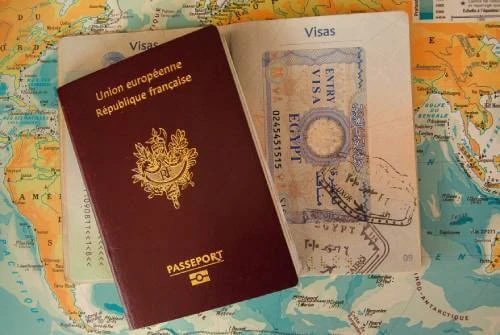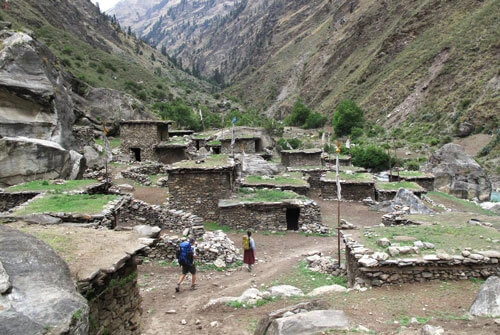Medicine to Carry While Trekking in Nepal
If you are planning to go trekking in Nepal, make sure you know the hazards of going into the mountains. It is important to be prepared for any potential medical issues that may arise. Here are some tips for carrying medicine while trekking in the Nepal Mountains: However, trekking with Nepal Pyramids includes a medically trained Group Leader with a comprehensive medical kit. Our medical kit includes things required for first aid and medicines recognized for high-altitude ailments.
However, all medicine is to be taken under the strict supervision of a medical professional.
It is common that accidents and injuries can occur during trekking, such as cuts, bruises, sprains, and strains. Having a first aid kit with essential medicines like pain relievers, antibiotics, antiseptics, and bandages can help you manage minor injuries and prevent them from becoming more serious.
Most importantly in case of any medical emergency, having essential medicines like painkillers, antihistamines, and antibiotics can help to stabilize the situation before professional medical help arrives. Significantly, you are in the wilderness where there can be chances of not having any Medical facility nearby. Furthermore, there can be situations where any rescues might take longer than expected or can be delayed under varied provisions.
Carry any prescription medication: If you are taking prescription medication, make sure you bring enough for the duration of your trek. Keep your medication in its original container, and bring a copy of your prescription in case you need to replace any lost or stolen medication.
Consider carrying a water filter or purification tablets: It is important to stay hydrated while trekking, but clean water sources may not always be available. Having a water filter or purification tablets can help you stay safe from water-borne illnesses.
Bring insect repellent and anti-itch cream: Depending on your location, you may encounter insects that can bite or sting. Carrying insect repellent and anti-itch cream can help you manage any discomfort.
Carrying medicine while trekking in the mountains of Nepal is important for several reasons:
- ALTITUDE SICKNESS: Altitude sickness is a common problem that can affect trekkers at higher elevations. Symptoms can involve loss of appetite, headache, nausea, dizziness, and fatigue even while resting. Having medicines like Acetazolamide or Dexamethasone can help alleviate the symptoms and prevent the condition from worsening.
- INSECT BITES AND STINGS: While trekking in the mountains, you may come across different kinds of insects, some of which can be poisonous. Carrying insect repellents, antihistamines, and other medicines can help prevent and treat insect bites and stings.
- FOOD POISONING: Food Poisoning is something very serious that most trekkers have to deal with while trekking in Nepal. There have been multiple cases where food poisoning has been imprecisely analyzed as Altitude Sickness being the symptoms fairly similar. Carrying Electrolytes, Antacids, and antibiotics like Ciprofloxacin or Metronidazole is really helpful.
- OTHER DIGESTIVE PROBLEMS: A change in diet and water can cause digestive problems such as diarrhea, FOOD POISONING, constipation, and stomach cramps while trekking. Carrying medicines such as anti-diarrheal and anti-nausea medications can help manage these symptoms and prevent further complications.
Overall, carrying medicine while trekking in the mountains is crucial to ensure your safety and well-being. It is always recommended to consult with a healthcare provider or travel medicine specialist before embarking on a trekking trip to ensure that you have the necessary medications and understand how to use them.
Medicine to carry while trekking in Nepal: Essential Medications for Trekking
List of Medications to Include in Your Comprehensive First Aid Kit
- ACETAZOLAMIDE - 250mg (DIAMOX) (taken over the counter for the prevention of AMS)
- DEXAMETHASONE – (for HACE) it is a steroid medicine that can be used as AMS preventive treatment if you are allergic to acetazolamide
- ASPIRIN (painkiller) – for mild to severe pain and flu.
- ADVIL or PARACETAMOL (painkiller for mild to severe pain and for fever or flu)
- CIPROFLOXACIN - (ANTIBIOTIC for kidney infection, bacterial diarrhea, typhoid fever)
- ERYTHROMYCIN OR AZITHROMYCIN - (ANTIBIOTIC for throat infection, chest infection, cuts and bites, and skin infection and can be given to people who are allergic to PENICILLIN)
- AMOXICILLIN - (ANTIBIOTIC – for a chest infection, teeth abscess, sinus)
- METRONIDAZOLE – (ANTIBIOTIC for Giardia, Food Poisoning, boil or swelling)
- FLEXON: Combo of Ibuprofen and Paracetamol (painkiller for mild to severe pain, headache, muscle pain, fever, or flu)
- Throat Lozenges - (relief from Throat irritation, pain, and soreness)
- Blister tapes.
- Bandages.
- Water Purification Tablets
- Lip balm.
- Sunscreen 50 SPF.
- Antiseptic Cream.
- ELECTROLYTES (keep yourself hydrated and improve your performance in the mountains)
- IMODIUM (Loperamide) – this is an anti-motility tablet for diarrhea
- Knee Support.
- Cigarette Lighter (Cigarette lighters can be useful in various outdoor settings)
- Swiss Army Knife.
- CETIRIZINE - Anti-histamine tablets (Allergy)
- Antacid tablets - (for neutralizing Stomach Acid and Heartburn)
- Oximeter (to monitor your oxygen saturation as you go higher into thin air)
- Adhesive tapes / Band-Aid tapes.
- Thermometer.
- Nail Clippers.
- Sewing Kit (recommended).
By being prepared with the right medicines, you can help to ensure that your trekking trip is safe and enjoyable.
Here are some additional tips for packing your first aid kit:
- Make sure your kit is waterproof and durable.
- Label all of your medications clearly.
- Pack your kit in a place where it is easy to access.
- Update your kit regularly.
By following these tips, you can help to ensure that your first aid kit is ready for anything that might happen while you are trekking.
Also, check Common Medical Issues While Trekking in Nepal and their Prevention.




